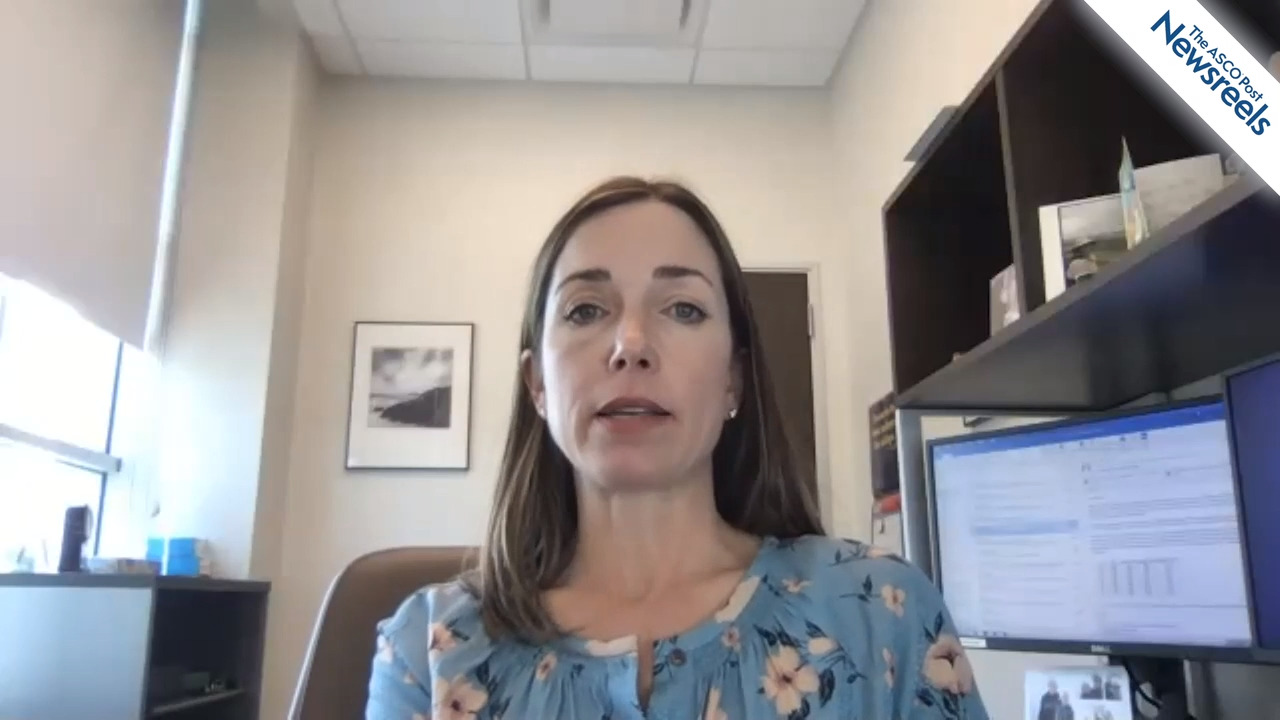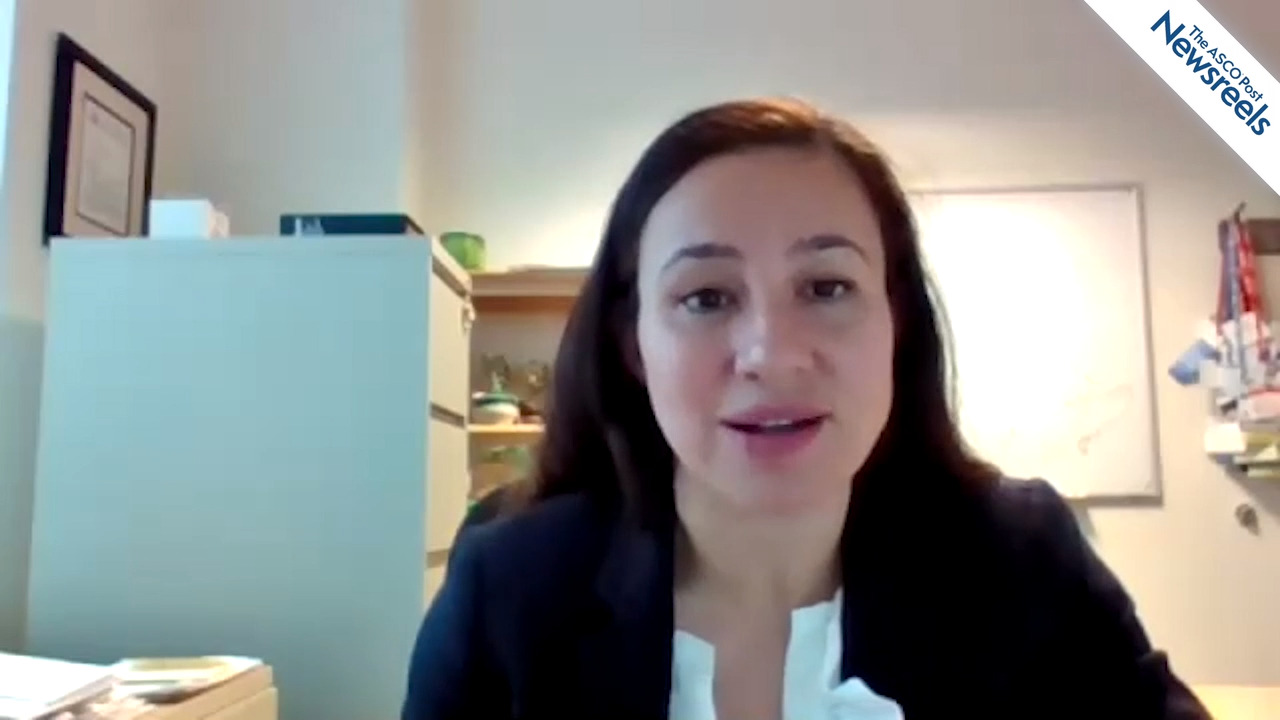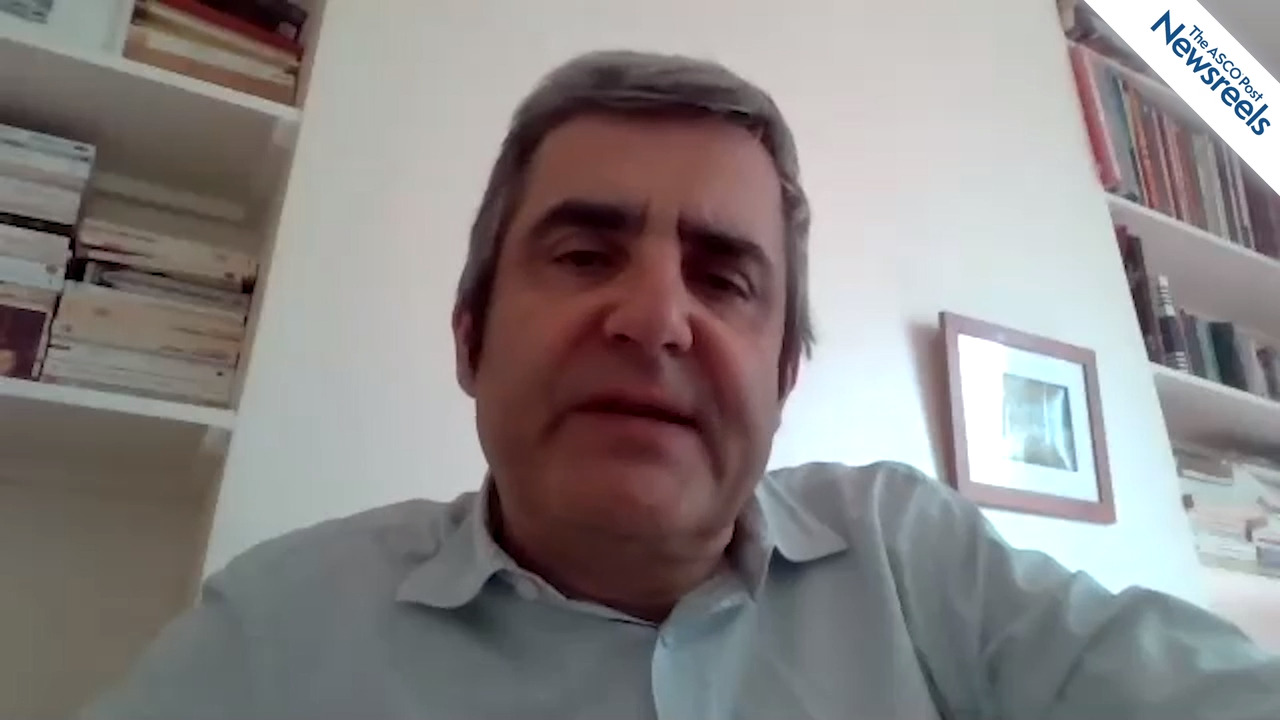Daniel P. Petrylak, MD, on Prostate Cancer: First-in-Human Study of ARV-110 Shows Antitumor Activity
ASCO20 Virtual Scientific Program
Daniel P. Petrylak, MD, of the Yale Cancer Center, discusses early data on ARV-110, an androgen receptor proteolysis–targeting chimera degrader, demonstrating antitumor activity in metastatic castration-resistant prostate cancer after treatment with enzalutamide and abiraterone (Abstract 3500).
The ASCO Post Staff
Parameswaran Hari, MD, of the Medical College of Wisconsin, discusses phase III data from a 6-year follow-up of the STaMINA trial, which compared progression-free survival among 758 patients with high-risk multiple myeloma who received a second autologous transplant and lenalidomide maintenance; consolidation with lenalidomide, bortezomib, and dexamethasone followed by lenalidomide maintenance; or lenalidomide maintenance alone (Abstract 8506).
The ASCO Post Staff
Sara A. Hurvitz, MD, of UCLA’s David Geffen School of Medicine, summarizes four breast cancer studies: KATHERINE, on adjuvant trastuzumab vs trastuzumab in patients with residual invasive disease after neoadjuvant therapy for HER2-positive breast cancer; KAITLIN, on trastuzumab emtansine and pertuzumab vs trastuzumab, pertuzumab, and taxane after anthracyclines as adjuvant therapy for high-risk HER2-positive early breast cancer; TRAIN-2, on neoadjuvant chemotherapy with or without anthracyclines for HER2-positive disease; and PHERGain, on chemotherapy de-escalation using an FDG-PET/CT and pathologic response–adapted strategy in HER2-positive early breast cancer (Abstracts 500, 501, 502, and 503).
The ASCO Post Staff
Rana R. McKay, MD, of the University of California, San Diego, discusses the results of a phase II trial of intense neoadjuvant hormone therapy followed by radical prostatectomy in men with high-risk prostate cancer. The data show that 21% of patients had a favorable pathologic response (Abstract 5503).
The ASCO Post Staff
Richard L. Schilsky, MD, Chief Medical Officer of ASCO, talks about some of the most important and practice-changing findings presented this year at the ASCO20 Virtual Scientific Program, including the use of targeted and immunotherapies in earlier lines of therapy, where they have made a significant impact.
The ASCO Post Staff
Thierry André, MD, of Hôpital Saint-Antoine, discusses the phase III results from KEYNOTE-177, which showed that, compared with standard chemotherapy of FOLFOX or FOLFIRI, pembrolizumab doubled median progression-free survival, from 8.2 months to 16.5 months, in patients with microsatellite instability–high/mismatch repair–deficient metastatic colorectal cancer (Abstract LBA4).





